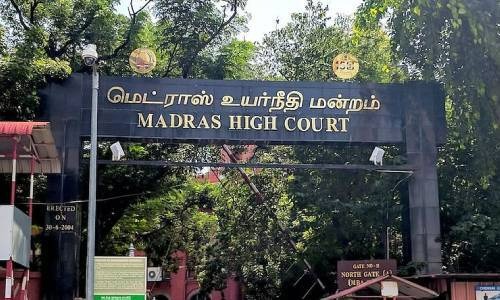
In the case of Sadam Hussain v. State and another, the police detained the appellant in questionable circumstances. Later, the appellant admitted that he had been sent to kill Kumaresan by Bakrudeen, President of the Indian Muslim Development Association. The aforementioned Kumaresan had objected to his son marrying Sahanaazmi, the Tiruvarur native's daughter by Raja Mohammed and Noor Nisha. In order for their son to convert to Islam because Kumaresan had objected to his doing so, the girl's parents asked Bakrudeen for assistance. By killing Kumaresan, they sent a message that others shouldn't marry Muslims in order to convert them to Hinduism in the future.
Three long sized bill hooks were found, and four additional people were detained as a result of the appellant's admissions. The Indian Penal Code, the Criminal Law Amendment Act, the Arms Act, and the Unlawful Activities Prevention Act were all cited offences against the appellant. Three times the appellant sought bail, but each of those requests was denied. The third bail petition was the subject of the current appeal.
The appellant had argued that the accusations were untrue and that his arrest in Trichy was due only to his participation in the WhatsApp group "Indian Muslim Development Association." Furthermore, it was claimed that the appellant had been unlawfully held and harassed while being called to the commissioner's office without a summons. The appellant also made a point of not having any prior experiences.
The false implication claim was rejected by the prosecution. According to the argument, there was evidence that, if given more time on bail, the appellant was likely to tamper with the evidence. Although the appellant had no prior offences, the prosecution argued that the current case's offences were serious and likely to inspire racial violence. According to established legal precedent, the appellant was ineligible for bail due to his involvement in terrible crimes.
The court observed that it was necessary to determine if there was a prima facie case against the accused before hearing a bail application for offences covered by Chapter IV of the UAPA Act.
In this instance, the court observed that the appellant's stated goals were to remove obstacles to conversion and to threaten other groups of people not to ally themselves with Islam. However, these motivations could never come together. If the appellant's goal was to kill Kumaresan, his method of operation might have been concealed, but if it was to send a message, it would have been obvious.
The court had also highlighted that Kumaresan had not actually filed a complaint and therefore no offence had occurred. The basis for the entire investigation was only a police officer's concern that surfaced during his usual patrol. As a result, the court was persuaded that the appellant had no basis for a claim.
As a result, the court granted bail to the appellant while emphasizing that the remarks made in the ruling solely related to the bail application and that they could not be used to influence the special court and noted that “taking into consideration the facts and circumstances of the case in the light of the decisions referred to above and a perusal of the case diary, this court is of the opinion that the allegations against the appellant do not fall within the definition of "Terrorist Act" and there are no reasonable grounds for believing that the accusation against the appellant is prima facie true.”

